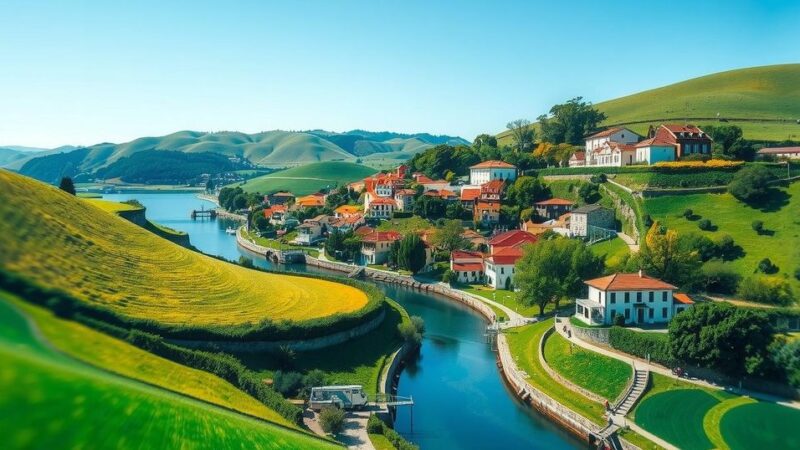Ghana’s opposition, the NDC, claims victory for candidate John Mahama in the recent presidential election against NPP’s Bawumia, despite ongoing official tallying. Economic struggles dominated the campaign, influencing voter behavior amid high inflation and a recent IMF bailout. Preliminary results show Mahama leading, with official results expected soon.
Accra (AFP) – In a significant development following Ghana’s recent presidential election, the opposition party, the National Democratic Congress (NDC), has asserted that provisional results indicate their candidate, John Mahama, has emerged victorious. This announcement comes despite ongoing official tallying by electoral authorities, who have yet to finalize results. The election featured a direct contest between Mr. Mahama and the incumbent Vice President, Mahamudu Bawumia of the ruling New Patriotic Party (NPP), amid pressing economic challenges facing the nation.
The backdrop of the election was Ghana’s struggling economy, marked by a recent debt default and soaring inflation, leading to a $3 billion bailout from the International Monetary Fund (IMF). Voters were choosing a successor to the outgoing President Nana Akufo-Addo, who has reached the limit of two terms in office, and also electing a new parliament. According to Sammy Gyamfi, a spokesman for the NDC, their internal analysis shows Mahama secured 56.3 percent of the votes, while Bawumia garnered 41.3 percent.
“It is very clear the people of this country have voted for change,” Gyamfi remarked. Local media outlets confirmed that preliminary results from various constituencies demonstrated Mahama’s lead over Bawumia. Although political parties employ agents at polling stations to oversee initial counting, the Electoral Commission of Ghana has indicated that official results are still pending, with expectations of a formal announcement by Tuesday.
If confirmed, this outcome would represent a notable shift in power dynamics given Ghana’s tradition of alternating governance between the NDC and NPP since 1992. The NPP, using the slogan “Break the 8” aimed to achieve an unprecedented third consecutive term; however, Bawumia’s connection to the existing administration’s economic policies may have hindered his campaign. While inflation rates have seen a decline, the electorate’s dissatisfaction with economic conditions remains a pivotal issue, allowing Mahama, who served as president from 2012 to 2017, the opportunity for a comeback, having previously failed in two presidential elections since then.
The recent presidential election in Ghana unfolds against a backdrop of economic instability characterized by high inflation and public discontent with government policies. The national discourse has been heavily focused on economic recovery, especially following a debt crisis and the subsequent intervention by the IMF. The election marks a critical juncture, as voters are not only choosing a new president to succeed Nana Akufo-Addo but are also tasked with selecting a new parliamentary assembly. Ghana’s history of political alternation between the two major parties, the NDC and NPP, has typically fostered democratic stability, making this election particularly significant within the broader context of national governance.
In conclusion, the claims by the opposition party in Ghana regarding John Mahama’s victory in the recent presidential election highlight the complexities of the country’s political landscape amidst economic turmoil. As the electoral commission continues to finalize results, both parties are poised for a pivotal moment that could reshape Ghana’s governance. This election underscores the critical role that economic conditions play in influencing voter sentiment and shifts in political power.
Original Source: www.france24.com







